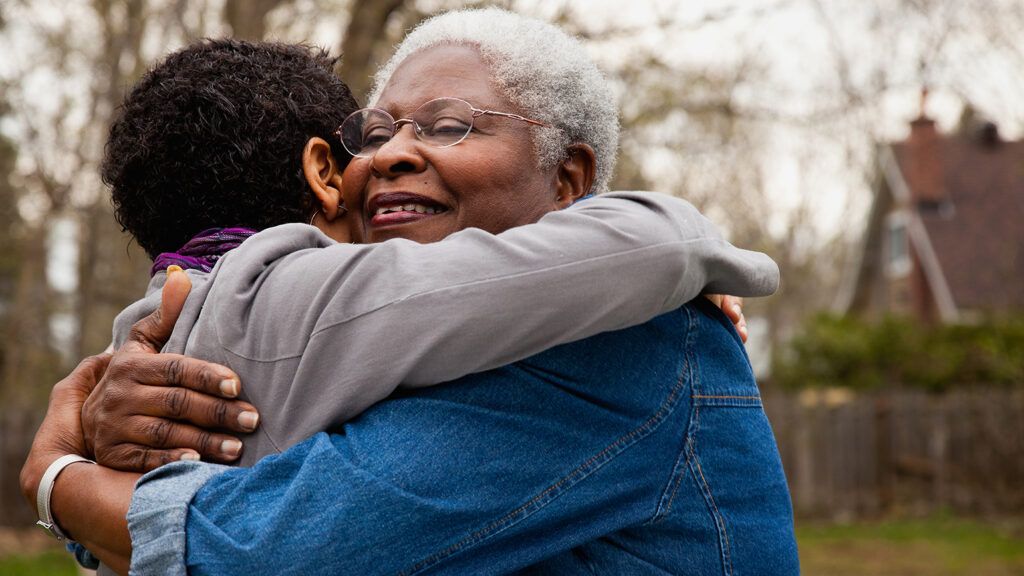Most family caregivers feel tremendous amount of responsibility. They are constantly on edge—and on call—in service to a loved one’s need. It is often hard to admit they feel burdened, opting instead to put their own emotional health on the back burner. This can lead to caregiver stress and imbalance.
It happened to me in the years I was caring for my mother. Here are some of the things I found valuable in coping with caregiver stress.
1. Have a venting buddy. My best friend was also going through a caregiving crisis with her mom and we supported each other in the worst moments. When you are scared about a loved one’s health―or angry about how drained you feel from caregiving―you need someone to share your real feelings with. Whether this is an old friend who knows your family, or a new friend with whom you share a caregiving bond, give each other the gift of listening without judgment or trying to fix your problems.
2. Join or create a support group. Caregiver support groups are cropping up around the country. Search for local groups related to the issues your loved is facing (disabilities, cancer, aging, etc.) and check with local hospitals and houses of worship, as well caregiving organization websites. If you can’t find a group locally, consider organizing one. Whether caring for an elderly relative, an addicted love one special-needs child or a sick spouse, caregiving has many universal components―such as self-sacrifice and hard work―and caregivers often bond quickly.
3. Find a caregiver community online. Many caregivers can’t get away from their responsibilities for too long. My life changed the day I found a Facebook group. I was sitting in the ER with my mother, stressed to the max, when I came across this group. Filled with compassionate and sympathetic people, who can relate to any caregiving or family issue, it became my lifeline. Seeing the stories of others made me realize I was not alone. Having people leave positive comments on my posts was very empowering. Also, I discovered my experience as a caregiver was helpful to others. Many people facing a family caregiving crisis find solace and coping ideas in online groups.
4. Consider therapy. There may come a time when all the little things you do to relieve stress are not enough. There is nothing wrong about needing a different level of emotional support. I found myself getting very sad and depressed, so I looked for a therapist trained in dealing with a person in the midst of a caregiving crisis. It helped me through the darkest days. Having a therapist to talk to honestly is not just cathartic but it helps you gain new coping skills.
5. Seek a spiritual group or prayer group. Gathering people together to bear witness to each other’s stories and offer supportive ideas is helpful. And in the context of a spiritual group, it can help you address human emotions while also connecting to God. This can assist you in coming to terms with the difficult situations you are facing.
6. Reach out to a chaplain. Having the support of someone trained in pastoral counseling can be invaluable. Most hospitals and hospice programs have compassionate and nonjudgmental clergy to help you navigate the crisis―and perhaps rise above it enough spiritually to get some perspective. When my mom went into hospice, the chaplain there visited her, but I was the one who found it helpful to chat with him. He helped me see that what I was feeling was normal and how holding in bottled-up emotions could result in stress-related ailments. Part of my stress was the simple fact that that no matter how much I did for my mom, her life would end. “You are giving your mother the best end of life possible,” he said. “And that is a gift for you both.” His input at that moment helped change my attitude. He also gave me an opportunity to cry. For that I am eternally grateful.






